
Linvoseltamab plus carfilzomib produced expected toxicities in patients with heavily pretreated, relapsed/refractory multiple myeloma.

Your AI-Trained Oncology Knowledge Connection!


Linvoseltamab plus carfilzomib produced expected toxicities in patients with heavily pretreated, relapsed/refractory multiple myeloma.

Donna Catamero, ANP-BC, OCN, CCRC, discusses the challenges community-based clinicians face in delivering bispecific antibodies and CAR T-cell therapy for multiple myeloma.
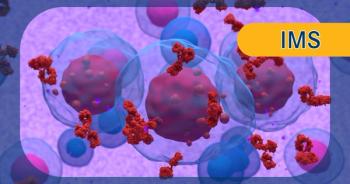
Isa-KRd led to a 74.8% MRD negativity rate in high-risk newly diagnosed multiple myeloma subgroups.

SHR-4849 showed acceptable safety and early antitumor activity in relapsed small cell lung cancer.

SHR-4849 showed acceptable safety and preliminary antitumor activity in relapsed small cell lung cancer.

Tarek Mouhieddine, MD, discusses the predictive role of ferritin levels and ALC in patients with multiple myeloma receiving bispecific antibodies.

ISB 2001 had a manageable safety profile and induced deep, durable responses at active doses in patients with relapsed/refractory multiple myeloma.

Marc S. Raab, MD, PhD, discusses the efficacy of teclistamab-based induction in patients with newly diagnosed multiple myeloma.

The combination of cevostamab, pomalidomide, and dexamethasone was deemed safe with early efficacy signals in relapsed/refractory multiple myeloma.
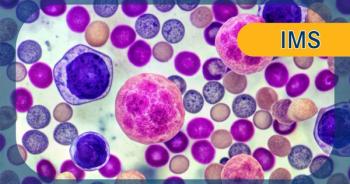
Early and promising efficacy was shown with elranatamab added to daratumumab/lenalidomide in transplant-ineligible, newly diagnosed multiple myeloma.

Tarlatamab plus anti–PD-L1 as frontline maintenance shows acceptable safety and unprecedented survival in extensive-stage SCLC.

Tarlatamab plus anti–PD-L1 therapy as frontline maintenance shows acceptable safety and unprecedented survival in extensive-stage SCLC.

Kelsey Pan, MD, MPH, discusses notable presentations from an OncLive Fellows Forum on Thoracic Oncology.

Experts preview abstracts being presented at IMS, highlighting the role of MRD, bispecific antibodies, and other strategies to refine myeloma management.

Experts reflect on pivotal data, emerging agents, and highly anticipated trends in lung cancer during the IASLC 2025 World Conference on Lung Cancer.

Benjamin L. Schlechter, MD, discusses safety with botensilimab plus balstilimab in MSS CRC.

Real-world data showed that lutetium Lu 177 dotatate led to partial responses in patients with metastatic bronchopulmonary neuroendocrine tumors.
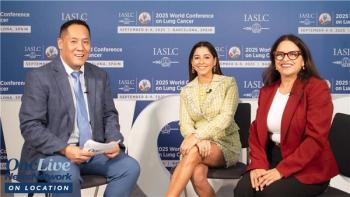
Estelamari Rodriguez, MD, MPH, Coral Olazagasti, MD, and Tina Roy, MD, sit down with Chandler Park, MD, FACP, to discuss the latest abstracts in lung cancer presented during the International Association for the Study of Lung Cancer 2025 World Conference on Lung Cancer.
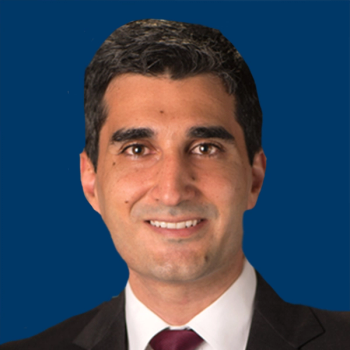
Hematology experts highlight the MDS, lymphoma, and myeloma data they were most excited to see at the 2025 SOHO Annual Meeting.

Repotrectinib elicited durable responses, including intracranial responses, in TKI-naive and -pretreated patients with NSCLC.

Five-year data show cemiplimab plus chemotherapy delivers durable OS, ORR, and DOR benefits in advanced NSCLC.
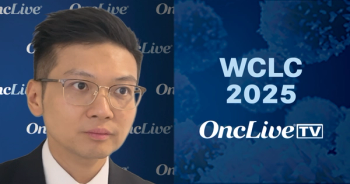
Yang Xia, MD, PhD, discusses the use of different ctDNA monitoring to detect resistance and predict outcomes in NSCLC with MET exon 14 skipping mutations.
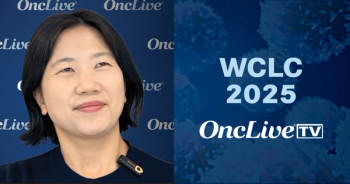
Sun-Min Lim, MD, PhD, discusses the potential adoption of first-line subcutaneous amivantamab plus chemotherapy in EGFR-mutant NSCLC.

Firmonertinib was active and safe at both the 160-mg and 240-mg dose levels across a broad range of patients with NSCLC harboring EGFR PACC mutations.

Firmonertinib led to responses with a tolerable safety profile in frontline EGFR L858R–mutated NSCLC.
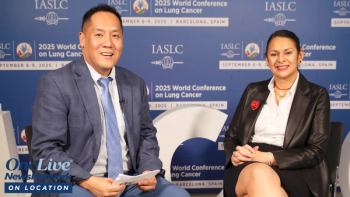
Narjust Florez, MD, and Joshua K. Sabari, MD, sit down with Chandler Park, MD, FACP, to discuss the latest abstracts in lung cancer presented during the International Association for the Study of Lung Cancer 2025 World Conference on Lung Cancer.

Tepotinib treatment was characterized by frequent but manageable TRAEs in MET exon 14–positive NSCLC, with peripheral edema as the most common toxicity.

The SKYSCRAPER-05 trial shed light on the use of perioperative tiragolumab plus atezolizumab with or without chemotherapy in NSCLC.
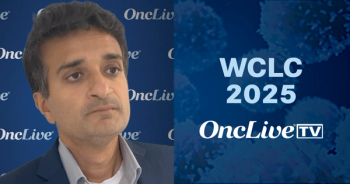
Sandip P. Patel, MD, discusses remaining gaps in biomarker testing and their implications for targeted therapies in early-stage NSCLC.

Eric K. Singhi, MD, expands on how oncologists can work with patient advocacy groups on social media to improve patient education and engagement.